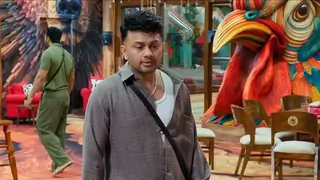Pakistan quake prompts unprecedented spirit of giving
KARACHI (Reuters) - Five days after an earthquake hit northern Pakistan, cars and people loaded with relief goods continue to stream into collection centres all over the country in an unprecedented outpouring of giving.
In the southern financial centre of Karachi, Pakistanis waited in the heat and sun for their turn to unload the goods at the largest such centre at the Pakistan Air Force (PAF) Museum, lent to the private campaign by the air force.
"The spirit of the people I saw here is difficult to put into words. It is unprecedented," said Faiza Amir, a housewife with her seven-year-old child, who was on her third trip to the camp since Saturday when the first television appeal aired.
People at the makeshift circles of tents erected in the car park of the museum have not only turned up to deliver food, water, medicines and blankets, but hundreds of young people have signed up as volunteers to help unload and manage the operation.
"As soon as we heard of this camp being established, our whole group of friends spontaneously decided to come here and offer our help," said Shariq Ali, a 20-year-old college student.
"Here we met people we have never seen before, never spoken to, but we have been working with them like we have been friends forever. I have never witnessed such a scene of brotherhood and fellowship," he said.
SPIRIT OF RAMADAN
As it is the holy month of Ramadan, most of the volunteers and aid givers in this Islamic country are fasting -- not eating or drinking anything from dawn to dusk -- only helping themselves beat the heat by pouring water over their heads.
"I believe the spirit of Ramadan which calls for giving, compassion and sacrifice was a key catalyst in galvanising the people," said Tahir A. Khan, head of TV-One channel, which first aired the appeal and has helped collect over 15,000 tonnes of goods at the museum.
Within 24 hours of the disaster, Karachi's main boulevards were dotted with small centres set up by non-government organisations and charities, and students set out door to door in their neighbourhoods asking for help in kind and cash.
Similar scenes have been reported from all over the country.
In Peshawar, capital of North West Frontier Province not far from the epicentre of the quake, 10 collection points sprang up in a matter of hours in the posh neighbourhood of Cantt.
People in Lahore in the east packed their vehicles and decided to drive up-country to the quake-hit zone on their own.
"There is a constant stream of private cars, vans, trucks coming in with relief goods. These people have brought in goods far in excess of government aid the town has received so far," said Asma Sherazi, a journalist covering the disaster from the quake-struck town of Balakot.
Sherazi was among the hundreds of TV journalists covering the quake for a dozen-plus private channels, which have been beaming the story of the destruction around the clock.
"Of course the television channels have helped a lot in generating awareness," said Tariq Ghafoor, an army brigadier in charge of the relief operation at the museum.
Tahir A. Khan said the media did what it had to: "Inform, motivate and establish the value and credibility of the cause".
"But let me tell you I was myself taken aback by the public response," said Khan who after just 48 hours had to ask people to give them a day's break to make space for fresh aid. Azhar Abbas, who heads the news section at GEO Television, said several NGOs and individuals had launched campaigns to collect relief for the victims of the tsunami that hit several Asian countries, including neighbour India, last December. "So this time around when disaster hit their own country there was a feeling that they had to do a lot more," he said. Abbas and Khan both said television would play a key role in help sustain this spirit as the rehabilitation of the millions of people displaced by the quake could drag on for some time."The fact is that life is cruel and people's memory is short. Human nature is to weep and then go along with life," said Khan.

















